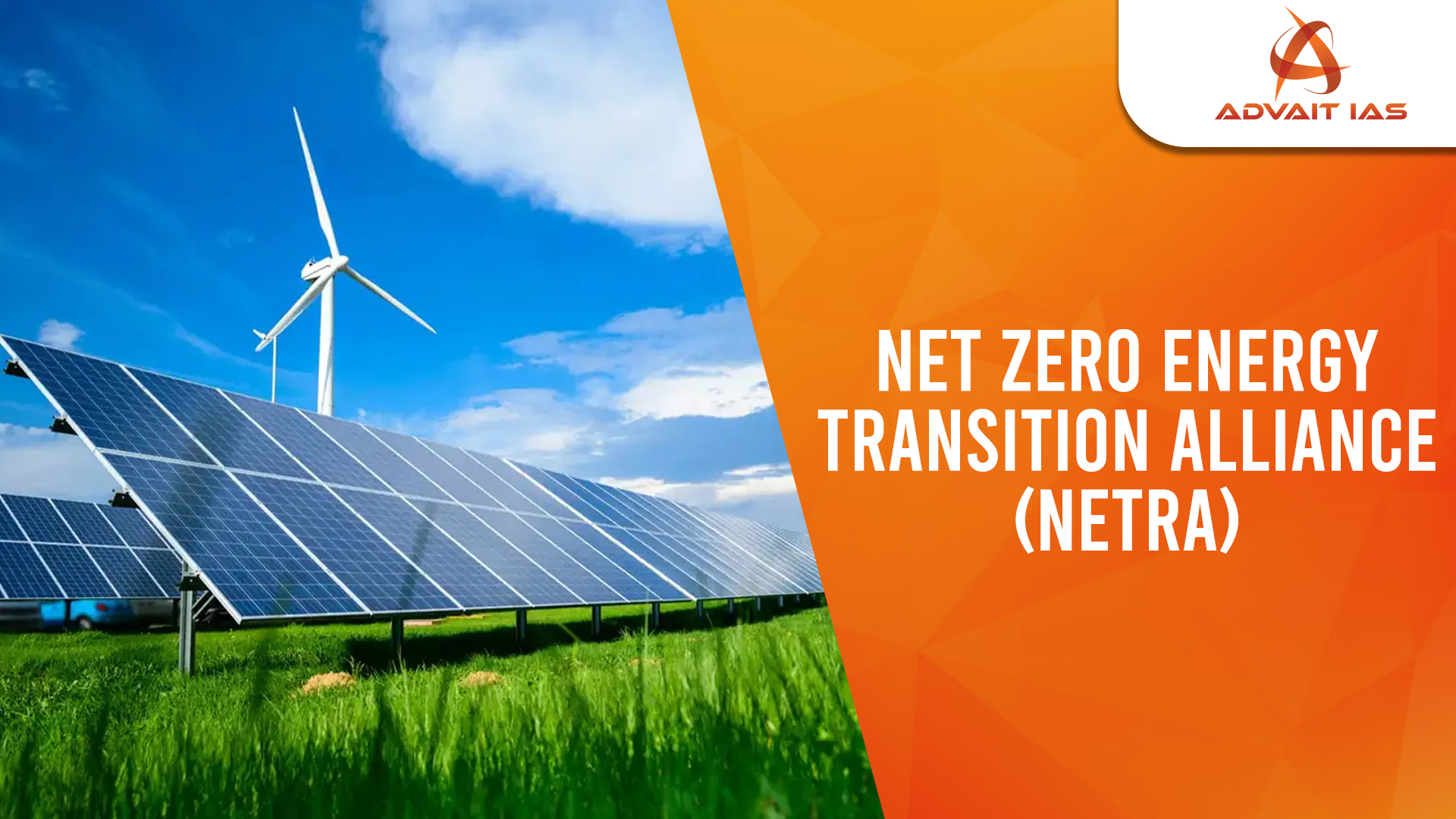Overview:
- NETRA is a not-for-profit global alliance launched to accelerate commercialisation and scaling of zero carbon emission technologies.
- Announced on April 22, 2025, on the 55th anniversary of Earth Day, during the virtual conference ‘Our Power – Our Planet’.
- Supported by org and over 300 global leaders, innovators, and investors.
Six Core Pillars of NETRA:
- Policy advocacy and regulatory support.
- Industry-led R&D and innovation collaborations.
- Market development and commercialisation of clean technologies.
- Capacity building and skill development.
- Knowledge sharing and networking.
- Access to capital and strategic partnerships.
Key Focus Areas:
- Renewable Energy: Solar, wind, biomass, hydro, and nuclear.
- Sustainable Mobility: Electric vehicles (EVs), unmanned aerial vehicles (UAVs).
- Industrial Decarbonisation: Cement, steel, petrochemicals, plastics, and data centers.
- Advanced Technologies:
- Carbon capture
- Batteries and energy storage
- Smart grids and utilities
- Circular economy and supply chains
- Green buildings
Global Partnerships:
- Founding President: Rahul Walawalkar
- Partner Organizations:
- LDES Council
- Green Hydrogen Organization (GH2 India)
- Australia Microgrid Center of Excellence (AMCoE)
- UL Research Institute (ULRI)
- PIXII (Europe’s 3rd fastest-growing energy tech firm)
- Norway-India Chamber of Commerce & Industry (NICCI)
Implementation Plans:
- NETRA will develop a 12-month action plan to align global sectors and regions.
- Focus on removing deployment barriers and fast-tracking technology adoption.
Net Zero Carbon Emissions: India’s Vision and Needs
What is Net Zero?
- Net Zero or carbon neutrality means balancing carbon emissions with carbon removal from the atmosphere.
- Achieved when emissions = removals, through natural sinks (like forests) or technologies (like carbon capture).
Five Key Commitments (Panchamrit) at COP26 (Glasgow, 2021).
- Net Zero Emissions by 2070.
- 50% energy from renewables by 2030.
- Reduce projected carbon emissions by 1 billion tons by 2030.
- Increase non-fossil energy capacity to 500 GW by 2030.
- Cut carbon intensity by over 45% by 2030 (from 2005 levels).
Domestic Initiatives & Policies
- National Action Plan on Climate Change (NAPCC) – umbrella policy for climate strategies.
- National Mission on Sustainable Transport – for eco-friendly mobility solutions.
- National Biodiversity Action Plan – conserving biodiversity for climate resilience.
- Green Hydrogen Mission – promoting green fuels.
- PM Ujjwala Yojana – clean cooking energy, reducing carbon from household sources.
- Soil Health Card Scheme – sustainable agriculture practices.
International Initiatives & Engagements
- Mission LiFE – lifestyle for environment, promotes eco-conscious living.
- International Solar Alliance (ISA) – promotes solar energy use globally.
- Global Biofuel Alliance – India-led initiative to boost biofuel use.
- Kigali Amendment – phasing out HFCs with high global warming potential.
- Global Stocktake (COP28, 2023) – India’s progress report on Paris Agreement goals.
- Coalition for Disaster Resilient Infrastructure (CDRI) – promotes resilient infrastructure.
- Bharat Stage Emission Standards (BSES) – vehicle emissions aligned with global norms.
Key Needs to Achieve Net Zero
- Massive investments in renewable energy & clean tech.
- Grid modernization and smart energy storage systems.
- Research and innovation in low-carbon technologies.
- Behavioral change and lifestyle transformation (Mission LiFE).
- Strong global cooperation and climate finance access.
- Industry transformation in steel, cement, transport, and energy sectors.






